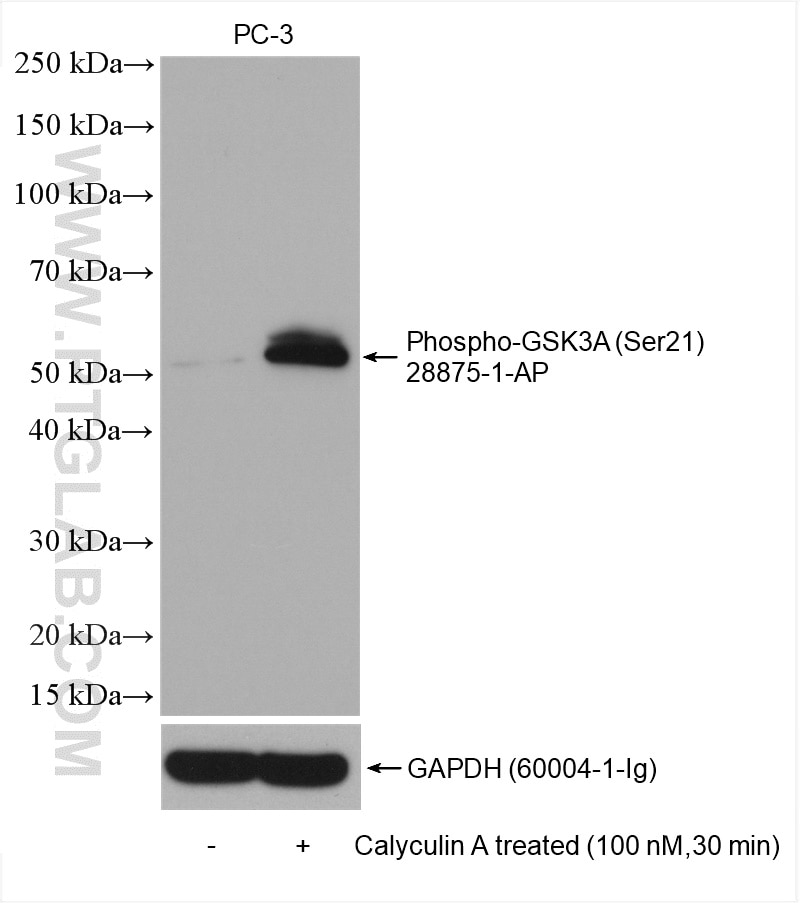Tested Applications
| Positive WB detected in | Calyculin A treated PC-3 cells |
Recommended dilution
| Application | Dilution |
|---|---|
| Western Blot (WB) | WB : 1:1000-1:6000 |
| It is recommended that this reagent should be titrated in each testing system to obtain optimal results. | |
| Sample-dependent, Check data in validation data gallery. | |
Product Information
28875-1-AP targets Phospho-GSK3A (Ser21) in WB, ELISA applications and shows reactivity with Human samples.
| Tested Reactivity | Human |
| Host / Isotype | Rabbit / IgG |
| Class | Polyclonal |
| Type | Antibody |
| Immunogen |
Peptide Predict reactive species |
| Full Name | glycogen synthase kinase 3 alpha |
| Calculated Molecular Weight | 483 aa, 51 kDa |
| Observed Molecular Weight | 51 kDa |
| GenBank Accession Number | BC027984 |
| Gene Symbol | GSK3A |
| Gene ID (NCBI) | 2931 |
| RRID | AB_2918211 |
| Conjugate | Unconjugated |
| Form | Liquid |
| Purification Method | Antigen affinity purification |
| UNIPROT ID | P49840 |
| Storage Buffer | PBS with 0.02% sodium azide and 50% glycerol, pH 7.3. |
| Storage Conditions | Store at -20°C. Stable for one year after shipment. Aliquoting is unnecessary for -20oC storage. 20ul sizes contain 0.1% BSA. |
Background Information
GSK3A (glycogen synthase kinase 3 alpha), one of the two functional isoforms encoded by the GSK3 gene, is a serine/threonine protein kinase that is involved in cell-cycle progression, differentiation, and apoptosis (PMID: 27049759). Glycogen synthase kinase-3 (GSK-3) was initially identified as an enzyme that regulates glycogen synthesis in response to insulin.GSK-3 is a critical downstream element of the PI3K/Akt cell survival pathway whose activity can be inhibited by Akt-mediated phosphorylation at Ser21 of GSK-3A and Ser9 of GSK-3B. GSK3A acts as a tumor suppressor and has important roles in acute myeloid leukemia (AML), prostate cancer, and pancreatic cancer (PMID: 22326953, 22539113, 23547054).
Protocols
| Product Specific Protocols | |
|---|---|
| WB protocol for Phospho-GSK3A (Ser21) antibody 28875-1-AP | Download protocol |
| Standard Protocols | |
|---|---|
| Click here to view our Standard Protocols |




